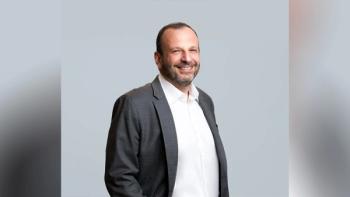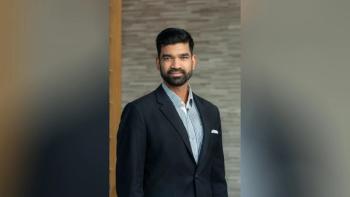
CSL Behring and Takeda Discuss Advancing Clinical Development and the Future of Trials
The conversation took place during the Veeva R&D Summit in Boston.
At the Veeva R&D and Quality Summit in Boston, Pharmaceutical Executive spoke with three industry leaders who discussed their experiences pushing forward clinical development transformation at their companies. The panel included Takeda’s Melissa Umbehauer Chiasson, senior director and head of process, training, and digital solutions, Nick Kurkjy, operational data project lead for clinical trials; and CSL Behring's Charles Johnson, executive director of clinical technology and innovation.
Pharmaceutical Executive: Takeda and CSL Behring have made significant progress in advancing clinical trials. Can you share your journey and how you got started?
Johnson:It started a few years ago when our senior leadership asked us to explore what our clinical trials would look like in 2030. We didn't have cohesiveness across our three companies at the time, so we started to look at a platform approach to help us aggregate data better for visualization. We had some disparate processes to go along with our disconnected systems, so we wanted to start tightening down how we captured data across the board for all our different therapeutic areas.
Umbehauer Chiasson: I remember sitting in a room in late 2019, and we already had plans to move to Veeva Vault CTMS. We were looking at influencing a solution that's for sponsor oversight and wondered if we could go further. What if we could have our partners working in our systems and own our operational data? We started to try to harness the power of operational data — both what we already had and what we were receiving from our partners — and we spent significant time, effort, and energy to optimize it.
PE: Takeda's clinical development transformation is focused on advancing the R&D development model. Can you share the long-term vision for clinical?
Umbehauer Chiasson: Veeva Clinical Platform helps us enable our people and processes through technology. We know our clinical data points and our standards, but it was critical to talk through our process and understand what data we were trying to capture. This helped us understand what we are working towards, which is a more connected clinical landscape across teams and stakeholders.
Looking ahead, we’re evaluating opportunities to drive automation and continued efficiencies by leveraging our process data and starting to marry it with our operational and patient data. That's an exciting journey, and we have the technology foundation to push it forward.
PE: CSL brought two separate entities onto a single technology platform. How has this initiative changed how trials are managed?
Johnson: Coming out of this initiative, we’re gaining efficiencies in how we collect data, and to do that, we’ve had to adapt to new ways of working. We’re capturing data from all three entities in an operational data lake that provides consistent clinical insights.
Using that reporting for predictive analytics to understand where we need to go next with some of our clinical trials has been an untapped benefit for us. Now that we have all this data flowing in from across our teams and study partners, we can do more analysis to support our programs.
PE: Takeda shifted from an outsourced model to an in-house model. What was the key driver for this change?
Kurkjy: The lack of proper visibility and ownership hindered us from being able to drive our trials where we wanted. We want to have insights on a day-to-day basis and an understanding of what's going on. At the time, we weren't confident that we could have that if we were completely dependent upon a partner.
PE: Takeda and CSL have both modernized clinical development supported by technology. What can you do now using applications on a single platform that wasn't possible before?
Kurkjy: Before, we could do fundamental oversight activities. We’ve now adopted a full-fledged, fully-featured clinical trial management system (CTMS) that provides proper ownership of our operational data, which we haven't had before because we were so reliant on our partners.
Johnson:CSL was already in another CTMS system and had access to monitoring visit data and things like that. What we weren't doing was taking that data and optimizing insights from it. Pulling everything into the Veeva Clinical Platform helps us organize that insight data so our teams can continue to leverage it.
Umbehauer Chiasson: Even as we talk about our clinical trial development transformation, we're at the start of implementing these new technologies and ways of working. When we think about the changes we're making, we focus on sustaining the progress and continuous improvement across the people, process, and technology.
PE: What do you think comes next for your clinical trials?
Johnson: My future vision for clinical trials from a technology perspective is delivering source-agnostic capability around collecting data. I think we need to get to a place where we can literally collect data from anywhere.
The tricky thing that we are going through right now is figuring out the process and people side. There are some challenges around over-designing and analyzing every single data point that hinders us. As soon as we can build some process to break through those things, we'll see more flexibility from a regulatory perspective. That will help push us forward and how we interact within clinical trials. I still think we're a ways away from that, but it is where we are headed.
Umbehauer Chiasson: We’ll continue to grow into risk-based quality management. The regulations say we can take a risk-based approach, but as organizations, we must get comfortable. That is where you can leverage the data and the technology to help drive that forward. I do think those are places we have opportunities to continue to grow.
PE: Where do you see clinical trials headed over the next ten years?
Johnson: The big focus for my team will be on advancing clinical data. We're doing a lot with operational data today, which will continue for the next few years. Once satisfied, we look again at what's next across our trials to figure out how and what we should streamline next.
Kurkjy: I'll just say more trials, more data, more working closely with patients and sites. It is not just about trials, protocols, and eligibility criteria getting more complex. It's also that there are more sources of data. It's about how to set up a proper foundation focused on people, processes, and technology so that you can work towards bringing all of those data sources into your clinical systems and using them to execute trials successfully.
Umbehauer Chiasson: We're now trying to simplify the patient experience from a technology perspective. We will move towards delivering that digital patient experience, which will also require us to consider the regulations and how we comply with them. We’ll be thinking about how to influence those areas in a positive way to build trust in technology, be an innovator, and help drive clinical innovation.
Newsletter
Lead with insight with the Pharmaceutical Executive newsletter, featuring strategic analysis, leadership trends, and market intelligence for biopharma decision-makers.




